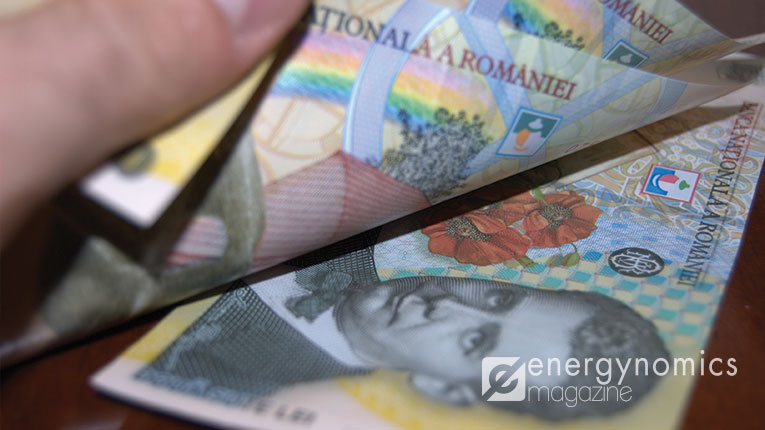The price of gas in suppliers’ offers for household consumers in Romania increased over 4-fold during September 2019 – November 2021. The advance is even greater, by 4.8-fold, if we relate to September 2020. However, the first year of the COVID-19 pandemic is not the best reference, even though the economic deadlock and drastic decrease in consumption troubled the wholesale commodity markets and is responsible to a great extent for the tensions we are facing in 2021.
Transition to a clean energy is the best guarantee against shocks on future prices and must be accelerated, says the European Commission. In the short term, the European executive has proposed 8 types of measures to protect consumers and enterprises from the accelerated price increase in the market of energy raw materials. Romania has chosen to use four of them, with nuances crying for explanations.
Emergency support for 70% of the population
The European Commission has referred to supporting “consumers affected by energy poverty” and the authorities in Bucharest have decided to compensate by payments from the state budget 33% of the price, with only three limitations which have no significant impact. According to the Energy Minister, the protection measure targets over 70% of Romania’s population, “so that, in addition to capping, household consumers do not pay more than they paid in December last year”, mentioned Virgil Popescu.
The bureaucratic scheme chosen to apply this measure involves at least 30 days of delay between the moment of billing and the moment of collecting the amounts compensated by the state. The European Commission has proposed something similar with the formula “authorization of temporary postponement of the due date of bills”.
Aids granted to enterprises or industries
An aid scheme was introduced for small and medium enterprises, for micro-enterprises, for liberal professions, family enterprises and family doctors’ offices. They will pay only the price of energy, being exempt from the payment of regulated tariffs and excise duty to the state budget. As an effect, it results in a compensation of around RON 0.044/kWh, i.e. RON 44 for a consumption of 1,000 kWh per month. The price of gas was also capped for hospitals, schools, NGOs, religious units, social service providers, at the level of RON 0.37/kWh, with all taxes and tariffs included, i.e. RON 0.25/kWh, for commodity gas.
Capping the gas price
The measure of capping gas prices does not appear among the European recommendations and it was initially rejected by government officials. Moreover, in debates in the Parliament, USR Deputy Cristina Prună warned that the measure “could have a significant negative impact on the electricity market. A similar measure of capping the price at the supplier has led to important bankruptcies in the UK. Therefore, 17 companies went bankrupt, affecting over 2 million household customers. In this way, pressure is placed on the Supplier of Last Resort, with the risk of affecting the end-consumer by interrupting the service. In the medium term, the market becomes concentrated around several suppliers, affecting competition and in the end it’s still the consumer who will pay a higher price”. The objection was rejected, so that the invoiced final price of natural gas is capped at RON 0.37/kWh, of which the gas price component will be maximum RON 0.250/kWh. Beneficiaries are household consumers, as well as a number of consumers such as hospitals, schools, NGOs, religious units, social services providers.
OMV Petrom: Prices will remain high
OMV Petrom, one of the two largest gas producers in Romania, claims that prices will continue to remain high until the second quarter of next year, when there may be a “slight” decrease.
According to Profit.ro, no additional volumes of natural gas are expected for Europe before the first quarter of next year, nor the commissioning of the Nord Stream 2 pipeline.
For Romania, the financial director of OMV Petrom, Alina Popa, talks about the negotiation of bilateral contracts with the start of the new gas year, which runs from October to September next year. “You should expect for the fourth quarter a slight increase in gas prices compared to the third quarter, when most of the [prices] in our contracts came […] from the previous year. Therefore, [the price in the third quarter of 2021] is at a lower level [than the market prices today]”, explained Alina Popa, according to Profit.ro.
Saving is the ever-postponed solution
In the end, the measures taken by the Government on compensation and capping of energy bills should have been accompanied by messages encouraging energy savings and stopping waste, pointed out Maria Mânicuţă, director of network tariffs at the National Regulatory Authority for Energy (ANRE), during an Energynomics conference. “I was very surprised that the measures urgently taken by the Government at the moment, when these price spikes took place, referred only to capping the costs, while I haven’t seen anything said about the fact that the cheapest energy we have available is the one we save”, the ANRE official said.
In her opinion, the first thing that should be done is the thermal insulation of buildings, an area where a large part of the country’s energy production is wasted. “Among the measures taken by the Government I haven’t seen any that really encourages energy savings or stops the waste which, in my opinion, exists in the energy system, for both electricity and natural gas”, Mânicuţă mentioned.
—————————————-
This article first appeared in the printed edition of Energynomics Magazine, issued in December 2021.
In order to receive the printed or electronic issue of Energynomics Magazine, we encourage you to write us at office [at] energynomics.ro to include you in our distribution list. All previous editions are available HERE.

